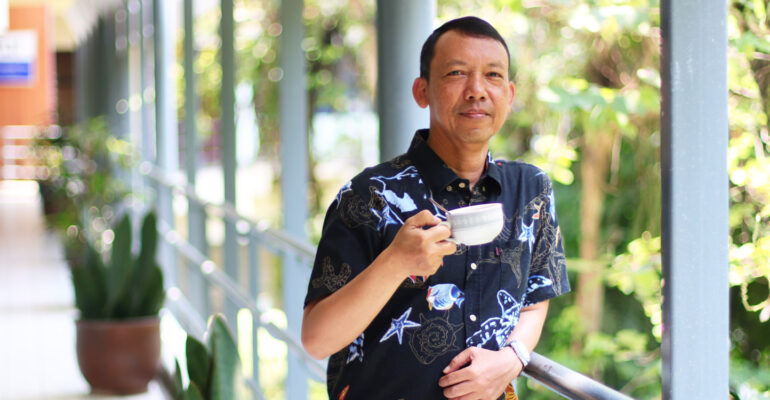Horseshoe Crab on the Verge of Extinction, IPB University Professor Reveals Solution Save These ‘Ancient Animals’

Ever heard of horseshoe crab? This uniquely shaped ancient animal still lives on the coast of Indonesia. Generally, people know it by various names such as mimi, mintuna, kudam crab, or horseshoe crab.
Horseshoe crabs are living fossils consisting of only four species in the world, three of which are found in Indonesia, namely Tachypleus gigas, Tachypleus tridentatus, and Carcinoscorpius rotundicauda.
Prof Yusli Wardiatno, an expert in Aquatic Biology at IPB University, revealed that the horseshoe crab population has declined due to habitat destruction, exploitation of its eggs and blood, and bycatch by fishermen.
“In some areas, horseshoe crab eggs are consumed as part of a local tradition. Its blue blood is also highly valued in the biomedical industry due to its hemocyanin content,” Prof Yusli continued.
He added, “However, despite its benefits, the threat to the turtle is increasingly real. The International Union for Conservation of Nature (IUCN) has even designated Tachypleus tridentatus , which is spread across East Kalimantan (Balikpapan), North Sulawesi and Maluku, as an endangered species.”
The Indonesian government has included the three species of turtles on the list of protected animals through the Minister of Environment and Forestry Regulation No. 20 of 2018.
The lecturer of the Faculty of Fisheries and Marine Sciences (FPIK) IPB University proposed a number of efforts to preserve this animal. Among them are the establishment of conservation areas, semi-natural captivity, and public education.
“One important initiative is underway in Ketapang, Tangerang. In this location, the restoration of the mangrove ecosystem has triggered the return of the horseshoe crab to the area,” he said.
If it is not immediately preserved, it is not impossible that the belangkas will just remain a name in the history books. “Let’s move together to save this living fossil for the balance of nature, biological heritage and the future of future generations,” said Prof Yusli. (Fj) (IAAS/PRP)



